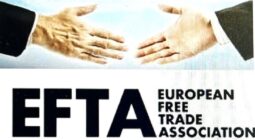New research from the World Economic Forum (WEF) finds that 40% of non-investors have chosen not to invest because they do not know how or find it too confusing. Furthermore, roughly 70% of people would be more likely to invest, or invest more, with expanded financial education.
According to the WEF, done in collaboration with BNY Mellon and Accenture, The Future of Capital Markets: Democratization of Retail Investing also finds that increased participation of retail investors in capital markets is a largely positive trend. Though some concerns about riskier investments remain, retail investors are showing themselves to be prudent investors using markets to build long-term wealth.
“Even amid market volatility, participation in capital markets can empower people to take ownership of their financial future,” said Meagan Andrews, Investing Lead at the World Economic Forum.
“We’re just now starting to understand the new wave of retail investors and the power they are wielding in the market. It’s important industry leaders take steps to empower individuals so they can optimize financial decisions for their betterment, whether they currently invest or not.”
Based on a global survey of over 9,000 respondents from 9 countries and expert interviews, the report highlights the importance of enhancing personalized advice for retail investors and improving the reliability of information and investor protections. It also underscores opportunities to improve education, trust and access to increase inclusion in global capital markets.
With the current market volatility, industry players, policy-makers and others need to act now to ensure the benefits of investing are increasingly accessible worldwide.
“Global capital markets are undergoing a fundamental transformation, with more individual and retail investors seeking access than ever before in history,” said Akash Shah, Chief Growth Officer at BNY Mellon. “This research highlights opportunities for the entire financial industry to build the trust and transparency needed to empower and democratize market participation in underserved communities around the world.”
The survey results provided critical insights into the factors and mindsets impacting individuals’ decisions to enter capital markets globally, said the WEF.
Notably, the survey found that individuals primarily look to capital markets to build long-term wealth, especially in emerging markets. Half of those surveyed were investing to save for retirement or to build generational wealth.
Retail investors are skewing younger, with Gen Z and younger Millennials investing at higher rates. Younger investors are much more likely than their peers to have received financial education earlier in life.
Meanwhile, non-investors are less confident they will achieve their long-term financial objectives and, when compared to investors, a higher proportion only learned about investing many years after entering the workforce. Their main reasons for avoiding financial markets were fear of losing money and because of an investing knowledge gap, it added.
Generational wealth also plays a vital role in deciding to invest early. Respondents whose parents invested in the market reported that they began investing earlier in life compared to those with parents who did not invest.
The survey also revealed significant gaps in product awareness. For instance, surveyed investors noted they had a greater understanding of newer products like cryptocurrencies and non-fungible tokens (NFTs) compared to more traditional instruments like stocks and bonds.
BNY Mellon and the World Economic Forum led a global survey of individuals across nine countries to inform this report. The survey was fielded by Qualtrics in May 2022 and sought to identify the driving factors on which investors and non-investors base crucial decisions. WEF said.
The Future of Capital Markets: Democratization of Retail Investing report uses the insights derived from the survey to shape its key considerations and outcomes.
All respondents had at least US $1,000 (or local equivalent) in investable assets and were over 18 years of age, it reads.








